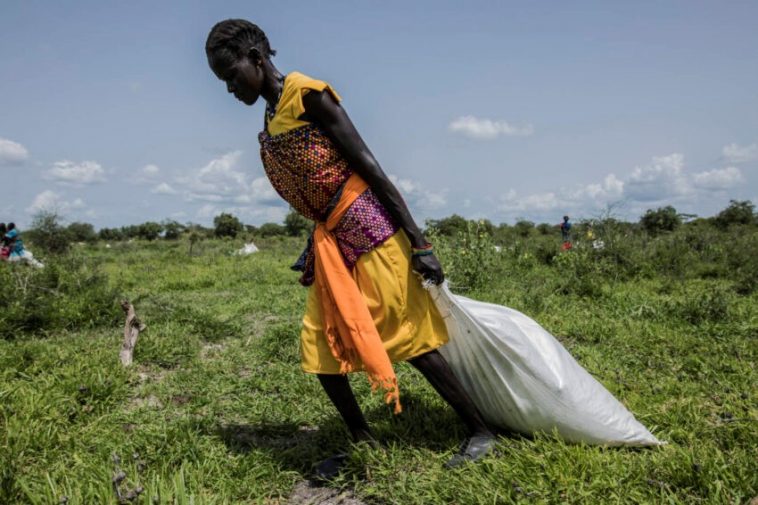They say that money makes the world go round, a statement which also holds true for agriculture. Every step in production requires some form of monetary use, thus agribusinesses are influenced by a myriad of economic factors that either spur or limit growth.
Agribusinesses participating in the international market are affected by prices and exchange rates. According to Snell (2020), the price of an item in international markets consists of four components – the price of the item leaving a nation’s border in either processed or non-processed form, the cost of transporting the item to an importing market, any trade tariffs and
taxes applied by the importing country, and the exchange rate. It is therefore imperative for agribusinesses to first be aware, raise or transfer the costs these four factors involve.
The effect of trade restrictions on agribusiness cannot be underestimated. A tariff or duty is a tax imposed by one country on the goods and services from another country. The “tax” can be fully or partially passed onto the consumer in the importing nation, or can be borne by the seller. Sub-Sahara African nations can also impose quotas, limiting the volume of goods that can enter a country or put in place a tariff rate quota, which allows goods at a certain level to come into a country with a lower or no tariff, while assessing a higher tariff on goods above a certain level. These tariffs or duties determine production objectives or quantities of corresponding agribusiness sectors affected by the restrictions.
The income per capita in each Sub-Saharan country varies. Consumers in higher income developing countries can afford to buy higher valued food items for example one would purchase meat instead of bread in a higher income developing country. For agribusinesses that are dependent on consumer trends, their product offerings would thus differ and may be limited by these facts.
The economic influence of governments is huge. Start-up agribusinesses usually need financial assistance to attend trade missions or trade shows, do market analysis, and access funding. If governments can provide funding for various programmes that look at income support, risk management, and educational and trade marketing assistance, the growth of agricultural participants can improve.
One of the common areas in which agribusinesses suffer in SSA is poor transportation infrastructure such as roads, railways, and waterways. Transportation infrastructure has a direct and indirect effect on agricultural performance. Food may fail to be delivered on time, or with the same quality as when it was prepared, especially in the case of perishable foods.

Source: Pixabay
In the end the lack of infrastructure may lead to higher food costs as suppliers incur higher fuel and vehicle maintenance costs which are billed to product buyers and in turn consumers.
Remuneration in the agricultural sector in most Sub-Sahara African countries is poor in spite of how labour intensive agricultural production is. Poor remuneration and unfavourable immigration policies, especially for countries dependent on foreign labour, give rise to labour strikes and resignations which destabilise consistent production. As business improves, more and more farms and companies will turn to ― as they already are ― more mechanised and automated systems.
Government spending towards the health sector, particularly when it comes to pandemic management, has had a tremendous effect on agriculture. Production, processing or value addition, trade volumes, and trade patterns can be influenced and disrupted by the spread of infectious diseases as observed by the effects of the recent coronavirus. A sickly labour force cannot produce results, thus now more than ever Sub-Sahara
African governments should play a proactive role in ensuring the agricultural labour force is healthy.
The Food and Agricultural Organisation (FAO) of the United Nations and
other sources estimate that overall food production will need to increase by 70% or more by 2050 to accommodate a 30% increase in global population and income growth. Nations with abundant agricultural resources, marketing infrastructure, and favourable trade policies will be in a position to take advantage of the growing global demand for food.
Despite the challenges that Sub-Sahara African agribusinesses face, they have a lot working in their favour to place them on par with companies in first world countries. If national, regional, and international agricultural policies can be modified in their favour, growth is limitless.
References
Snell, W. (2020) Economic Factors Affecting Agricultural Trade. Available at: https://agecon.ca.uky.edu/files/economic_factors_affecting_agricultural_trade.pdf
Factors affecting agriculture. Geography Revision. 2008 – 2023. Available at: https://geographyrevision.co.uk/gcse/agriculture/factors-affecting-agriculture/#:~:text=Subsidies%2C%20commodity%20prices%20and%20immigration,major%20economic%20factors%20affecting%20farming
Bowman, M. S., and D. Zilberman. 2013. Economic factors affecting diversified farming systems. Ecology and Society 18(1): 33. Available at:
http://dx.doi.org/10.5751/ES05574-180133
Demeke, M., Kiermeier, M., Sow, M., and Antonaci, L. Agriculture and food insecurity risk management in Africa. Food and Agriculture Organisation of the United Nations (2016) Available at: https://www.fao.org/3/i5936e/i5936e.pdf
Kargbo, J. M. (2011) The effects of macroeconomic factors on South African agriculture. Pages 2211- 2230. Available at: https://doi. org/10.1080/00036840600735374
McArthur, J. W., Sachs, J. D. (2018) Agriculture, Aid, and Economic Growth in Africa. The World Bank Economic Review, Volume 33, Issue 1, February 2019, Pages 1–20. Available at: https://doi.org/10.1093/wber/lhx029









